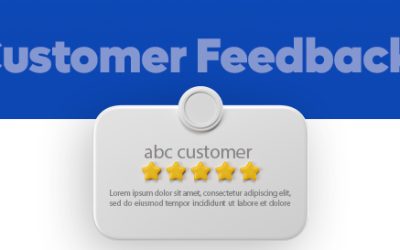Social media optimization is one of the major elements of digital marketing for healthcare. The social networks serve as a great outreach mechanism in ways that conventional marketing just can’t. And for physicians and healthcare centers this is just the kind of platform to reach out to the society they serve in a personal manner.
With over 80% of physicians using social media, according to various studies, clearly social networking is seen as having advantages beyond just personal communication or for interacting with colleagues and friends. Physicians use social media for publishing their blogs and articles, commenting on other posts, participating in forums, chatting or discussions, and securing more relevant information regarding their branch of medicine.
Don’t Forget HIPAA Compliance
But it’s important to know that physicians are bound by the Health Insurance Portability and Accountability Act (HIPAA), by which they are to ensure security of patient information. It is important that you ensure you don’t inadvertently end up breaking the terms of this act as you or your employees engage in your professional social networking activities. Extra care must also be taken to ensure that the SEO company to which you outsource social networking understands all the aspects of HIPAA compliance.
HIPAA was introduced in 1996, and sets standards for the security, confidentiality and transmission of personal health information (PHI). If you violate any of the terms of the HIPAA, through unnecessary exposure of patient’s information, by not taking the required steps to protect and secure that information, or by placing any patient information at risk of misuse by third parties, it could adversely affect the reputation of your practice if the patient files a lawsuit. Beyond the reputation loss, there are also civil and criminal legal actions you’ll have to deal with.
Possible Areas of HIPAA Violation
Now let’s get to the specifics of how your practice could possibly violate HIPAA norms:
- The most obvious manner is employees discussing patient information. While this could inadvertently happen on the social networks, it could happen at the physical workplace too.
- Employees could also share patient information with their friends and family which is also a violation of HIPAA norms. In the social networks, that would translate to posting information about patients even without disclosing names, sharing any PHI and photos without the patient’s written consent, and even sharing innocent pictures of staff that inadvertently happen to feature visible patient files.
Steps to Prevent Any Chances of HIPAA Violation
To prevent these things from happening you need to take some conscious steps that your staff must adhere to. Some of these steps could seem aggressive, but they’re worth the effort since HIPAA compliance can ensure the very sustenance of your practice:
- You and your staff must be cautious when receiving friend/connection requests on the social networks, or when they add friends and connections. Becoming friends causes you to have interactions with them during which you could accidentally discuss the health information of patients. Even if patients ask you questions regarding their personal health on the social networks, you don’t want to be discussing these stuff in these platforms. And there is a chance you could mention the patient’s name in your interactions, or even some PHI, which would be a direct violation of HIPAA regulation.
- Another area where you should be particularly careful is the online forums. PHI must never be shared online, even if you may be interacting with another physician or specialist to obtain their professional opinion.It raises the possibility of mentioning names and linking them to their respective PHI. In the event of a lawsuit against your practice alleging HIPAA violation, you really can’t get away from it since all these social media and forum interactions can be saved as screenshots and strengthen the case against your practice.
- You must ensure you don’t post any patient photos or even X-rays, charts or notes. This applies even when your social networks are private. Nothing in the social networks can be fully concealed. It could still get viewed and shared and cause trouble for you. Be very thoughtful in the pictures you post or even the pictures you like or retweet – you don’t want to be part of someone else’s HIPAA violation as well.
- Make sure that you don’t publicize any negative comments about, not only your patients, but also your employers and co-workers. It could cast your organization in a negative light, and there could be an inadvertent HIPAA violation there too.
Social Media Is a Proven Healthcare Marketing Platform
Social media provides many advantages for physicians and practices. Physicians are able to reach out to a wider section of audiences and show their expertise. This, in turn, helps them build their brand. There are just many options out here to do that on the social media – blogging, posting interactive videos and sharing great content. Experienced medical SEO companies are well aware of these effective methods to use social media.
And research proves that patients using social media can improve their health outcomes. Physicians are able to interact with patients even beyond the office visit which can help patients significantly, build trust and foster better relationship between the doctor and the patient. Physicians can impact patients’ lives more this way. Supplemental electronic communication can contribute to improving the adherence to treatment, particularly for patients suffering from chronic diseases. Increased communication with patients also helps improve their satisfaction.
Steps must be taken to improve HIPAA compliance so that your good intentions do not bring about any unintended results. Experienced SEO companies specializing in medical social media marketing are well aware of the potential risks of HIPAA violation and can ensure their clients don’t violate the norms inadvertently.




